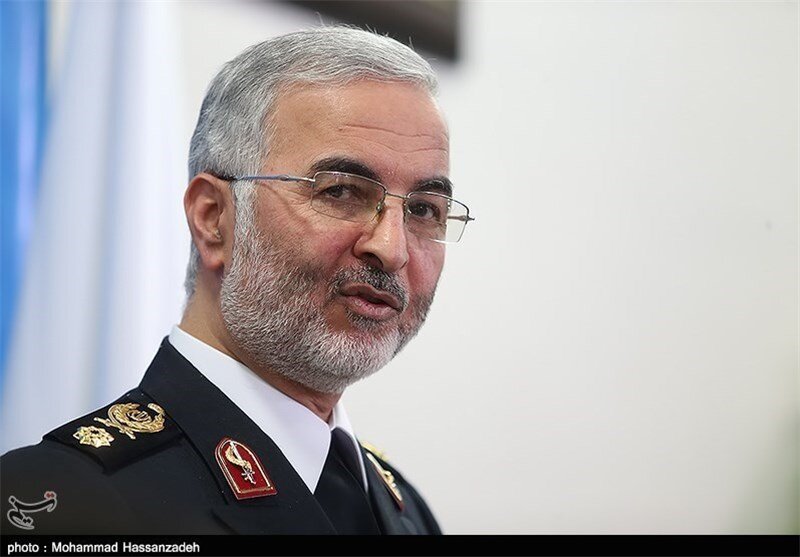Iran calls for an effective UN-led approach to counter narcotics

TEHRAN – Eskandar Momeni, the director of anti-narcotics police headquarters, has called on the United Nations to present a comprehensive and effective action plan to curb opium cultivation and production and to address the destructive problem of narcotics.
He made the remarks in the 65th session of the UN Commission on Narcotic Drugs which took place on March 14-18 in Vienna, Austria, ILNA reported.
In 2021, Iran succeeded in carrying out about 5,000 anti-narcotics operations and armed conflicts, destroying more than 2,300 active local, regional and international gangs and networks, and fighting against money laundering by enforcing effective laws and regulations.
During the mentioned operations, the counter-narcotics forces of the Islamic Republic discovered about 1,100 types of narcotics and psychotropic substances, including 62 tons of heroin and morphine, 835 tons of opium, 125 tons of cannabis, and about 25 tons of methamphetamine from the global drug trafficking cycle.
Last year, some 14 of the best forces have been martyred in the fight against drug smuggling, and 26 in the fight against miscreants and terrorist groups.
Discussing Iran's actions and achievements in the field of prevention and treatment of addiction, Momeni said that a total of 9,002 authorized treatment centers in the country have provided services to 1,413,075 people.
The Islamic Republic has also paid special attention to the establishment of women's rehabilitation and empowerment centers and the use of the capacities of non-governmental organizations.
The presence of extra-regional powers, the link between drugs and terrorism, the lack of proper accountability of some countries, the lack of proper control and effective prevention of financial flows of international traffickers are major challenges and the main driver of drug trafficking growth in West Asia and the world.
According to a report by the United Nations Office on Drugs and Crime (UNODC) in 2021, opium poppy cultivation and production in Afghanistan has increased, and in the lack of serious attention, the country has become a center for the production and trafficking of methamphetamine.
He also warned about the transit of drugs from Afghanistan to European countries and called for serious and urgent action in this regard.
Criticizing that despite numerous UN documents and the constant emphasis on the principle of shared responsibility, Iran has had the least amount of international support, despite its global anti-narcotics actions, hosting more than a few million refugees and fighting terrorist threats in the region, he noted that it is time for the United Nations to present a comprehensive and effective action plan to curb opium cultivation and production to address the devastating problem of narcotics.
He also addressed the issue of unilateral sanctions against Iran, saying that the actions of some countries in imposing harsh sanctions against Iran, politicizing international cooperation, and disrupting Iran's relentless struggle against international drug networks is a clear violation of international law, human rights, and UN resolutions.
At the end, Momeni made suggestions to the Commission to reduce challenges and enhance international efforts to address narcotics trafficking, including, full financial, technical, and equipment support to countries at the forefront of combating international drug and psychotropic substances trafficking.
Full cooperation of countries of origin, route, and destination of drug substances shipments to combat the diversion and illegal use of them in the production of drugs, targeting the financial flow of the drug traffickers using all available capacities, he suggested, highlighting the need for the United Nations to review and adopt an effective approach to pay serious attention to alternative cultivation, livelihoods and sustainable development in Afghanistan in line with recent incidents and developments.
Iran holds world record for narcotics confiscation
Iran holds the record for narcotics confiscation in the world, Momeni said in December 2021.
However, great achievements in the field of countermeasures have been gained, and the United Nations has officially announced that 90 percent of opium, 70 percent of morphine, and 20 percent of world heroin have been discovered by Iran.
Last year, about 1,200 tons of drugs were discovered, which was the highest rate of discovery in the world,” he explained.
According to figures released by the United Nations in 2000, Afghanistan produced about 200 tons of narcotics, but in 2018, it has grown to 9,500 tons.
In other words, the production of narcotics has increased fifty times, which has doubled the need for prevention efforts, he highlighted.
Despite the conditions caused by the coronavirus outbreak and the imposition of harsh sanctions against the country, fortunately, with the efforts of anti-narcotics police in 2020, drug detection increased by 41 percent.
After the Islamic Revolution (in 1979), 3,800 were martyred, 12,000 were wounded and disabled in the fight against drug trafficking.
The UNODC has praised Iran’s efforts to fight against narcotics trafficking on the occasion of International Day Against Drug Abuse and Illicit Trafficking.
The organization also officially announced that the world’s first place in the discovery of opium, heroin, and morphine belongs to Iran.
According to UNODC, Iran remains one of the major transit routes for drug trafficking from Afghanistan to European countries and has had a leading role at the global level in drug-control campaigns.
UNODC World Drug Report 2020 estimates that in 2018, 91 percent of world opium, 48 percent of the world morphine, and 26 percent of the world heroin were seized by Iran.
FB/MG
